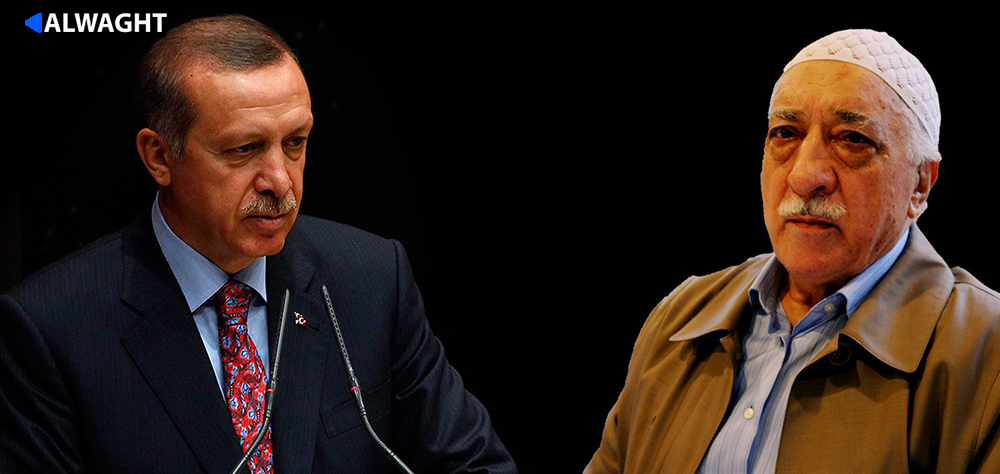Alwaght- Recently, Turkish police arrested 130 military personnel in 47 provinces on charges of involvement in the failed July 15, 2016 coup. Although the wave of arrests in the military ranks is not new, the coincidence of the actions against the President Recept Tayyip Erdogan opponents with criticism from the new US administration as the behind-the-scene backer of the power grab attempt makes the detentions even more important. The Turkish intelligence agency charged them with using an app used by the Fethullah Gulen movement’s agents at the coup night.
Ankara believes that the Gulen movement, by infiltrating the country's military and administrative structure, has gained significant influence in most institutions, a clear symbol of which emerged during the 2016 coup. Since 2016, 282,790 people have been arrested in connection with the coup, 94,975 of whom have been jailed by court order, but in the current situation, the issue is that the Turkish government has once again pointed the finger of blame at Washington. This means that the extradition of Gulen, a Turkish preacher based in Pennsylvania, is expected to affect relations between the Turkish government and the White House over the next four years.
Biden and Gulen extradition demand
The Biden presidency in the US was not good news for Erdogan and the ruling Justice and Development Party (AKP), many political observers think. During the presidency of Barack Obama, in which Joe Biden was vice president, Biden was portrayed as a pro-Kurdish figure with a relatively hard line on Turkish policies in the region. Also, in late 2019, Biden, in an interview with the New York Times, explicitly labeled Erdogan an authoritarian ruler and called for cooperation with Turkish opposition parties to defeat the AKP in the Turkish parliamentary elections.
Upon Biden's assumption of power, negative signals were sent from the White House to Ankara. These signals are explainable at three levels. First, the US-Turkey intelligence cooperation in the region especially to locate the whereabouts of the PKK fighters has been minimized or even cut off.
Second, when 13 Turkish security officers were killed in Duhok province in Iraq’s Kurdistan, the US State Department did not condemn the PKK, saying that it will do only if it is clear enough that the Kurdish militant group killed them.
And third, the US military activities to establish a military base in the Turkish-Iraqi-Syrian border triangle in the Direk area of Hasakah province in northeastern Syria have increased significantly, raising concerns among Turkish military and security officials. In addition to these issues, which represent the sources of the tensions between Ankara and Washington, on a broader scale, the issue of the extradition of Gulen has now become an important issue for managing the future of bilateral relations over the next four years.
Gulen's extradition demand has been seriously made by the Turkish government since the first months after the coup. At the time, Biden had called on the Turkish government to exercise restraint in the Gulen network case during a visit to Ankara. This demand continued during the Donald Trump administration, but the level of demands was never such as to damage the relations between the two sides. However, the new situation is very different and on the one hand, Ankara accuses the White House of plotting the 2016 coup, and on the other hand, the AKP accuses the US government of illegally supporting and harboring Gulen.
On February 4, Turkey’s Interior Minister Suleyman Solu accused Washington of being behind the attempted coup. This may be a prelude to new tensions with the Americans and possibly in the coming months, Gulen's extradition and the US support to the Gulenists will stir more tensions between the two sides.
Erdogan and fears of Gulen influence on elections
The tensions between the Biden administration and Ankara can be described as an outcome of the AKP's worries about the home situation. In the past three years, Turkey went through extremely tough economic conditions, leading to an increase in the number of AKP political opponents. For example, Ahmet Davutoglu, Abdullah Gul, and Ali Babacan defected from the party and founded a new one.
Erdogan seems to be worried about Gulen's influence in favor of the opposition and against the AKP in the next parliamentary elections. His concerns grow bigger as he knows that such regional rivals as Saudi Arabia and the UAE are inclined to support and bankroll moves by the Gulen network as part of their competition. Therefore, the Turkish government is expected to ramp up its demands from Biden for the Gulen handover.



























